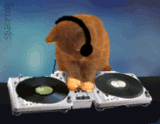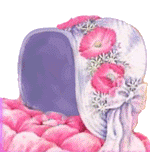Music is like a medicine that heals our wounded soul. Everybody likes music but some prefer mellow music, classic music & etc. I asked this hundred times what is the reality of music. Its not that I am just listening, it is also an inspiration and learned from it so here it goes;
Philosophy,” said Plato, “is the highest music.” He could with equal accuracy have said that music is the highest Philosophy. How else can we explain the deep feeling that Plato’s teacher , the redoubtable Socrates, had for music: the wisest of Greeks, he took to practicing the music of Dionysus while he lay in prison, to ease his mind.The cultures of antiquity believed that music could bring about a renewal of the divine balance that ideally encourage human life; that it could restore the harmony of the human psyche in times of distress. Indeed, the ancients regarded all forms of sickness –mental or physical – as being ultimately musical problems.A sick man, it was thought, had lost his inner strength: his harmony of being was said to have slipped from synchrony with the laws of the cosmos which was precisely the reason why music was used to bring about a patient’s realignment with the cosmos in its form of universal sound.Even more than in medicinal herbs, the ancients placed their faith in the healing powers of music to cure illness. Music was used as a key healing method by the ancient Hindus, Chinese, Persians, Egyptians, and Greeks; indeed, Homer’s Iliad and Odyssey celebrate the moments when the spread of a plague is halted by sacred hymns and Odysseus’ wounded knee is healed by the “chanting of lays.”It goes without saying that music was also used to heal emotional disorders by our forebears. Hippocrates, the father of medicine, often took his mental patients to the Temple of Asclepius , to make them listen to healing music.To the sage Pythagoras, good music was consonant with the rhythm of life. Paracelsus used the metaphor of ‘musical medicine’ to indicate a form of therapeutic music composed to deal with specific anomalies: this prefigured, in several ways, the idea of medieval minstrels playing music for patients in convalescence, fostering their recovery. Why, not too long ago- in the 19th century – music was much used in a curative capacity , at an institution for the mentally ill near Naples, giving credence to William Congreve famous epigram:”Music hath charms to soothe the savage beast.”Music according to scientific thought , has a
tranquilizer effect on patients – especially when they are tense, anxious and high – strung. And, it is completely safe , without the deleterious side – effects of the drugs now in vogue. But how can one beat the ‘pill’ industry, with its influence over the healing profession? Yet, modern music therapists have not lost hope. They are a small band, yes – but, they have brought about a change.They are pioneers in a materialistic world , being convinced about the potential capability of music to affect a wide variety of cures, in conjunction with, or apart from, conventional medical treatment. As a universal curative , music has the power to affect the human organism at the deepest levels ; it can heal the cause underlying the disease, rather than merely suppressing the visible symptoms as is often the case with most forms of modern medical treatment. Even in an age of high- technology miracles, this gift of antiquity can more than hold its own: it has been found to be efficacious in alleviating the pain of a host of illnesses ranging from asthma, tuberculosis, cancer, brain damage to headaches, heart disease hypertension, depression anxiety and hysteria. Some behavioral psychologists have even reported how the mentally disturbed have spent quiet nights, without sleeping pills, under the influence of recorded music. If music can bring about about such seemingly miraculous effects at the outer level, it can also move minds in more subtle ways: played in certain modes, it can instigate violence and exploit the motives and weaknesses of its listeners, whipping them into states of frenzy and hatred.But, equally, it can be soothing to the senses, invigorating its listeners with a notion of the good, filling them with the purposes of the noble and the sacted. It can help create an atmosphere that is conducive to philosophical reflection. Ultimately, it can serve as a path into the spitit; by healing and calming the outer surface of the personality, it can propel you into the discovery of your self. In so doing , it can act towards a gentle but nonetheless complete reorganization of the self. As Claudio Monteverdi, the first great composer of operatic music, phrased it in his timeless maxim: “The end of all good music is to affect the soul."
Philosophy,” said Plato, “is the highest music.” He could with equal accuracy have said that music is the highest Philosophy. How else can we explain the deep feeling that Plato’s teacher , the redoubtable Socrates, had for music: the wisest of Greeks, he took to practicing the music of Dionysus while he lay in prison, to ease his mind.The cultures of antiquity believed that music could bring about a renewal of the divine balance that ideally encourage human life; that it could restore the harmony of the human psyche in times of distress. Indeed, the ancients regarded all forms of sickness –mental or physical – as being ultimately musical problems.A sick man, it was thought, had lost his inner strength: his harmony of being was said to have slipped from synchrony with the laws of the cosmos which was precisely the reason why music was used to bring about a patient’s realignment with the cosmos in its form of universal sound.Even more than in medicinal herbs, the ancients placed their faith in the healing powers of music to cure illness. Music was used as a key healing method by the ancient Hindus, Chinese, Persians, Egyptians, and Greeks; indeed, Homer’s Iliad and Odyssey celebrate the moments when the spread of a plague is halted by sacred hymns and Odysseus’ wounded knee is healed by the “chanting of lays.”It goes without saying that music was also used to heal emotional disorders by our forebears. Hippocrates, the father of medicine, often took his mental patients to the Temple of Asclepius , to make them listen to healing music.To the sage Pythagoras, good music was consonant with the rhythm of life. Paracelsus used the metaphor of ‘musical medicine’ to indicate a form of therapeutic music composed to deal with specific anomalies: this prefigured, in several ways, the idea of medieval minstrels playing music for patients in convalescence, fostering their recovery. Why, not too long ago- in the 19th century – music was much used in a curative capacity , at an institution for the mentally ill near Naples, giving credence to William Congreve famous epigram:”Music hath charms to soothe the savage beast.”Music according to scientific thought , has a
tranquilizer effect on patients – especially when they are tense, anxious and high – strung. And, it is completely safe , without the deleterious side – effects of the drugs now in vogue. But how can one beat the ‘pill’ industry, with its influence over the healing profession? Yet, modern music therapists have not lost hope. They are a small band, yes – but, they have brought about a change.They are pioneers in a materialistic world , being convinced about the potential capability of music to affect a wide variety of cures, in conjunction with, or apart from, conventional medical treatment. As a universal curative , music has the power to affect the human organism at the deepest levels ; it can heal the cause underlying the disease, rather than merely suppressing the visible symptoms as is often the case with most forms of modern medical treatment. Even in an age of high- technology miracles, this gift of antiquity can more than hold its own: it has been found to be efficacious in alleviating the pain of a host of illnesses ranging from asthma, tuberculosis, cancer, brain damage to headaches, heart disease hypertension, depression anxiety and hysteria. Some behavioral psychologists have even reported how the mentally disturbed have spent quiet nights, without sleeping pills, under the influence of recorded music. If music can bring about about such seemingly miraculous effects at the outer level, it can also move minds in more subtle ways: played in certain modes, it can instigate violence and exploit the motives and weaknesses of its listeners, whipping them into states of frenzy and hatred.But, equally, it can be soothing to the senses, invigorating its listeners with a notion of the good, filling them with the purposes of the noble and the sacted. It can help create an atmosphere that is conducive to philosophical reflection. Ultimately, it can serve as a path into the spitit; by healing and calming the outer surface of the personality, it can propel you into the discovery of your self. In so doing , it can act towards a gentle but nonetheless complete reorganization of the self. As Claudio Monteverdi, the first great composer of operatic music, phrased it in his timeless maxim: “The end of all good music is to affect the soul."






















No comments:
Post a Comment